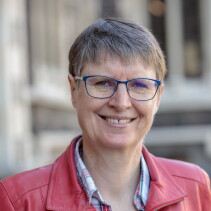- Phone:
- +64 3 479 7919
Address:
Department of Chemistry
University of Otago
PO Box 56
Dunedin 9054
Biography
Sally did her PhD with Dr Vickie McKee at the University of Canterbury, New Zealand (Vickie is now a Visiting Research Professor in Syddansk Universitet, Odense, Denmark and Adjunct Professor in Dublin City University, Ireland), and a postdoc with Professor George Sheldrick (of SHELX fame) at Göttingen University in Germany. She then returned to NZ to take up a lectureship at the University of Otago, the first position she applied for, where she is now a full professor and currently one of 7 inaugural Sesquicentennial Distinguished Professors (2020-2024). Sally is a Fellow of the Royal Society of Chemistry, Royal Society of New Zealand and New Zealand Institute of Chemistry and in 2018 was appointed a Member of the New Zealand Order of Merit for services to science, MNZM. Other recent awards include: Francis Lions Memorial Lecturer (Sydney University, 2018), RSNZ Hector Medal for outstanding work in chemical, physical or mathematical and information sciences (2017), 28th Inorganic Chemistry Award of the Royal Australian Chemical Institute (RACI), the Burrows Award (2017), and the University of Otago Distinguished Research Medal (2017), and the inaugural triennial Curtis Lecture (Victoria University Wellington, 2015). She loves supervising her large, multinational, highly productive and high impact research team (over 210 papers to date, h = 47 Web of Science, PhD 1989), Brookers Bunch.
Sally and her research group have prepared and characterised some key dinuclear spin crossover systems, including the first dicobalt complex to undergo simultaneous magnetic exchange and spin crossover, and the first structurally characterised dimetallic complex in which one metal ion is high spin whilst the other is low spin, and, in collaboration with Professor Jeff Tallon (RRI), the first triply switchable cobalt complex.
In collaboration with Professor Annie Powell (Karlsruhe) and Dr Rodolphe Clerac (Bordeaux), larger clusters of metal ions are also being targeted and magnetically characterised, consistent with another aim, the preparation of soluble single molecule/chain magnets (SMMs/SCMs): they reported the first SMMs to be designed and made in NZ. They are also taking steps towards immobilising switchable complexes on solid supports.
Sally is currently leading a German-NZ Green Hydrogen alliance, between team NZ green H2 and Helmholz Zentrum Hereon (HZH, Hamburg, Germany). This initiative aims to generate multiple research and industry links between Germany and NZ, to establish a physical presence in the form of a German-NZ green hydrogen research centre at the University of Otago, and to encourage development of a Southern Innovation campus and economic benefits to NZ.
Research interests
We remain very active in the design of new spin crossover systems, including new classes of ligands that support spin crossover active dinuclear helicates and tetranuclear cages, as these have potential as sensors.
In addition, over recent years we have increasingly focussed on testing our designer complexes as catalysts for the hydrogen evolution reaction (HER) and carbon dioxide reduction reaction (CO2RR).
Initially we focused on photocatalytic HER, working in collaboration with Professor Garry Hanan (Montreal) for testing, supported by a Catalyst Seed Grant. Based on the promising initial results obtained, we also collaborated with Professor Jadranka Travas-Sejdic (Auckland), successfully covalently immobilising some of our catalysts onto a solid support (via click onto PEDOT polymer immobilised on ITO).
More recently we have developed in house electrocatalytic HER testing capabilities at Otago.
We have also worked closely with Associate Professor Aaron Marshall (Canterbury) to develop an electrocatalytic CO2RR testing system in his lab, revising his existing heterogeneous testing systems to produce a system suitable for homogeneous CO2RR testing of molecular catalysts. The focus now is on testing more of our designer complexes using this system.
If we get it right, industry will certainly stand up and take notice.
Professor Sally Brooker
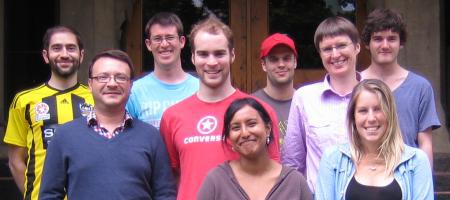
In the news

Annual Report
Funding successes - Annual Report 2022
April 19, 2023
Funding successes for our investigators and their research programmes during 2022. This funding enables our researchers and collaborators to continue their breakthrough research in advanced materials and nanotechnology.

Annual Report
Our research programmes over the years
April 18, 2023
There has been an evolution to move the focus of applications more towards global challenges of climate change and sustainability.
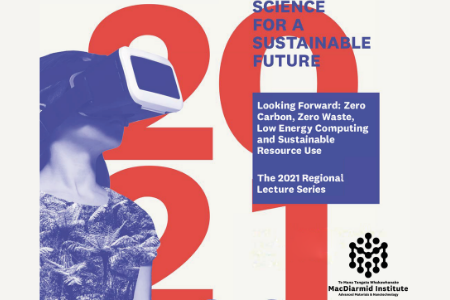
Annual Report
Science for a sustainable future
May 27, 2022
The 2021 Regional Lecture Series was able to go ahead in-person this year, with the theme of Science for a Sustainable Future.

Annual Report
Funding successes - Annual Report 2021
May 9, 2022
Funding successes for our investigators and their research programmes during 2021. This funding enables our researchers and collaborators to continue their breakthrough research in advanced materials and nanotechnology.

In The Media
NZ in the box seat on hydrogen
November 19, 2021
Principal Investigator, Sally Brooker writes about how New Zealand can take advantage of making green hydrogen to produce commodity chemicals, provide energy, and reduce emissions.
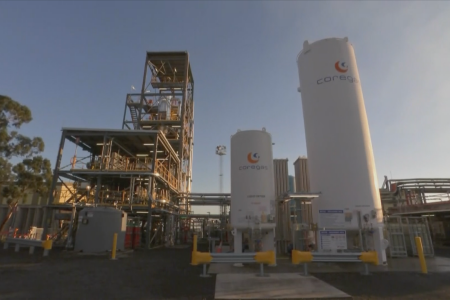
In The Media
NZ could lead the charge as interest grows in green hydrogen
October 25, 2021
NZ could lead the charge as interest grows in green hydrogen as plans are underway to build the world’s largest green hydrogen plant in Southland.
Read more about NZ could lead the charge as interest grows in green hydrogen
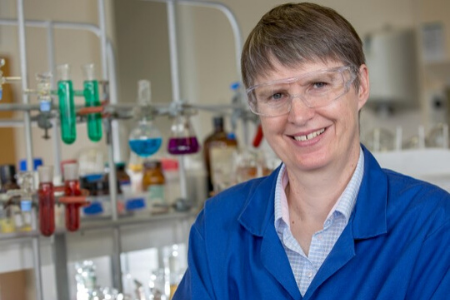
In The Media
Germans backing South Island green hydrogen research centre
October 20, 2021
A planned green hydrogen research centre in Dunedin now has the financial backing of both the New Zealand and German governments.
Read more about Germans backing South Island green hydrogen research centre
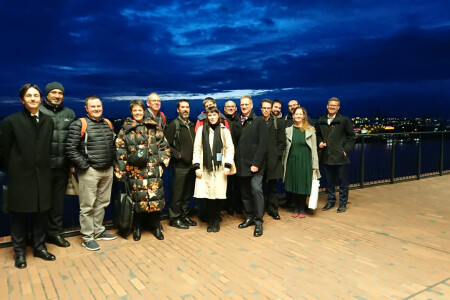
Annual Report
Internationally connected
March 31, 2021
Nicola Gaston and Sally Brooker were invited to join a German Academic Exchange Service-funded delegation to Germany..
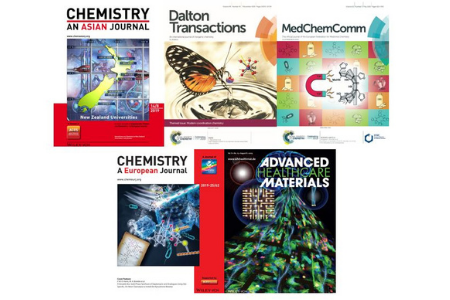
Annual Report
Journal covers
August 20, 2020
This page lists the various scientific journal covers that featured MacDiarmid Institute Investigators work in 2019.
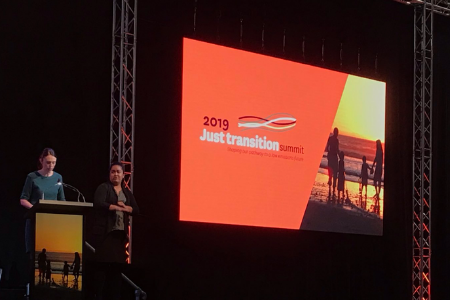
Annual Report
Materials science in the new energy sector
June 11, 2020
In May, the Government hosted the Just Transition summit in Taranaki on preparing for a low emissions economy,

Annual Report
Awards - Annual Report 2019
May 26, 2020
This article from our 2019 Annual Report provides information about the range of awards received by MacDiarmid Institute Investigators over the past year.
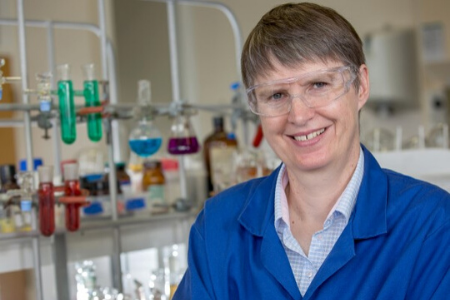
Annual Report
Fuelling NZ’s future with smart catalysts - Annual Report 2019
March 8, 2020
Professor Sally Brooker is leading a new collaboration combining chemistry and engineering to help fuel NZ's future.
Read more about Fuelling NZ’s future with smart catalysts - Annual Report 2019
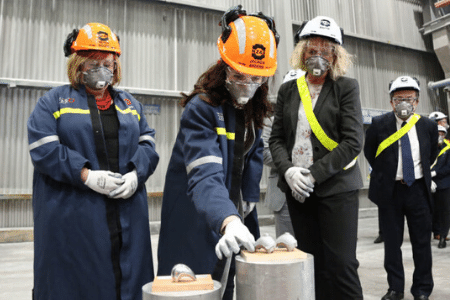
In The Media
Not-so-modest proposals for Tiwai
December 10, 2019
An ambitious solution would keep jobs in Southland and deliver on the promise of the Zero Carbon Act.
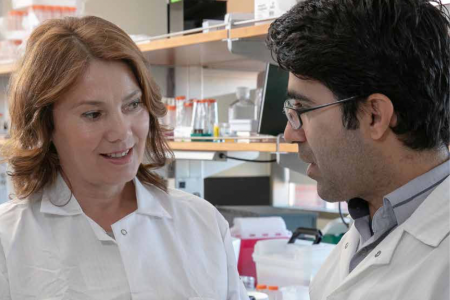
Annual Report
Connecting with researchers at UCLA - Annual Report 2018
April 8, 2019
The discovery of conducting polymers – plastics that conduct electricity – won New Zealander Alan MacDiarmid the Nobel Prize in 2000.
Read more about Connecting with researchers at UCLA - Annual Report 2018

Annual Report
2018 funding successes - Annual Report 2018
April 8, 2019
Funding successes for our investigators and their research programmes during 2018. This funding enables our researchers and collaborators to continue their breakthrough research in advanced materials and nanotechnology.

Annual Report
Journal covers - Annual Report 2018
April 8, 2019
This page lists the various scientific journal covers that featured MacDiarmid Institute Investigators work in 2018.
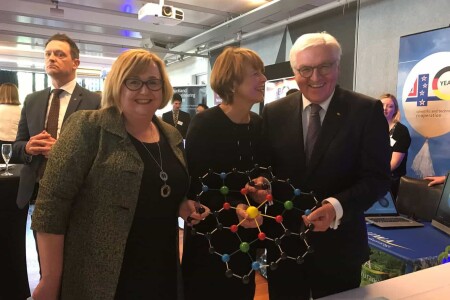
News Article
MacDiarmid researchers celebrate 40 years of Germany/NZ science co-operation with German President Steinmeier
January 25, 2018
Professor Sally Brooker and Dr Renee Goreham celebrate science collaborations with German President Steinmeier and his wife Elke Büdenbender.
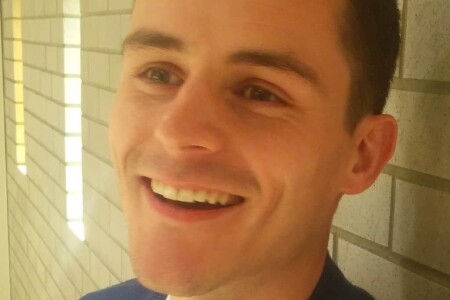
Interface Magazine
Nick White: Inspiring alumnus
July 10, 2015
MacDiarmid Institute alumnus, Dr Nick White was born in the UK, but grew up in New Zealand and completed his BSc (Hons) at the University of Otago, and PhD at the University of Oxford. He sat down with Kate Hannah to discuss his science, and what has inspired him throughout his remarkable career trajectory.
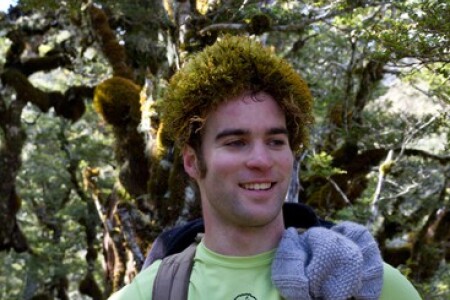
Interface Magazine
Matthew Cowan: Silver ions to the rescue!
July 10, 2015
We’re often told that obliging industry to significantly reduce energy consumption and energy-related emissions would be bad for business and the economy. There may be some truth in that, but it also seems apparent that if there was the political and economic will, there would be the scientific ways.
Events
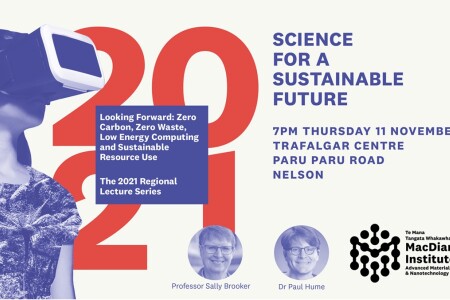
Science for a Sustainable Future - Nelson (11 November)
November 4, 2021
Prof Sally Brooker and Dr Paul Hume talk about the new research programmes, our Institute, and what the start of the new contract means for us.
Read more Science for a Sustainable Future - Nelson (11 November)
Podcasts
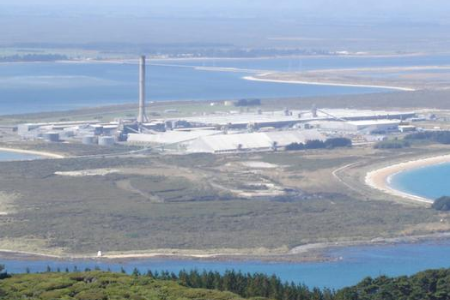
Ambitious proposals for surplus electricity once Tiwai closes
August 11, 2020
Professors Sally Brooker and David Williams discuss options for using surplus electricity at the Manapouri power station.
Read more about Ambitious proposals for surplus electricity once Tiwai closes
Videos
Sally Brooker - environmentally-friendly plastics
March 21, 2019
Professor Sally Brooker is using metal catalysts to develop cheap, environmentally-friendly plastics for use in a host of applications.
Read more about Sally Brooker - environmentally-friendly plastics



